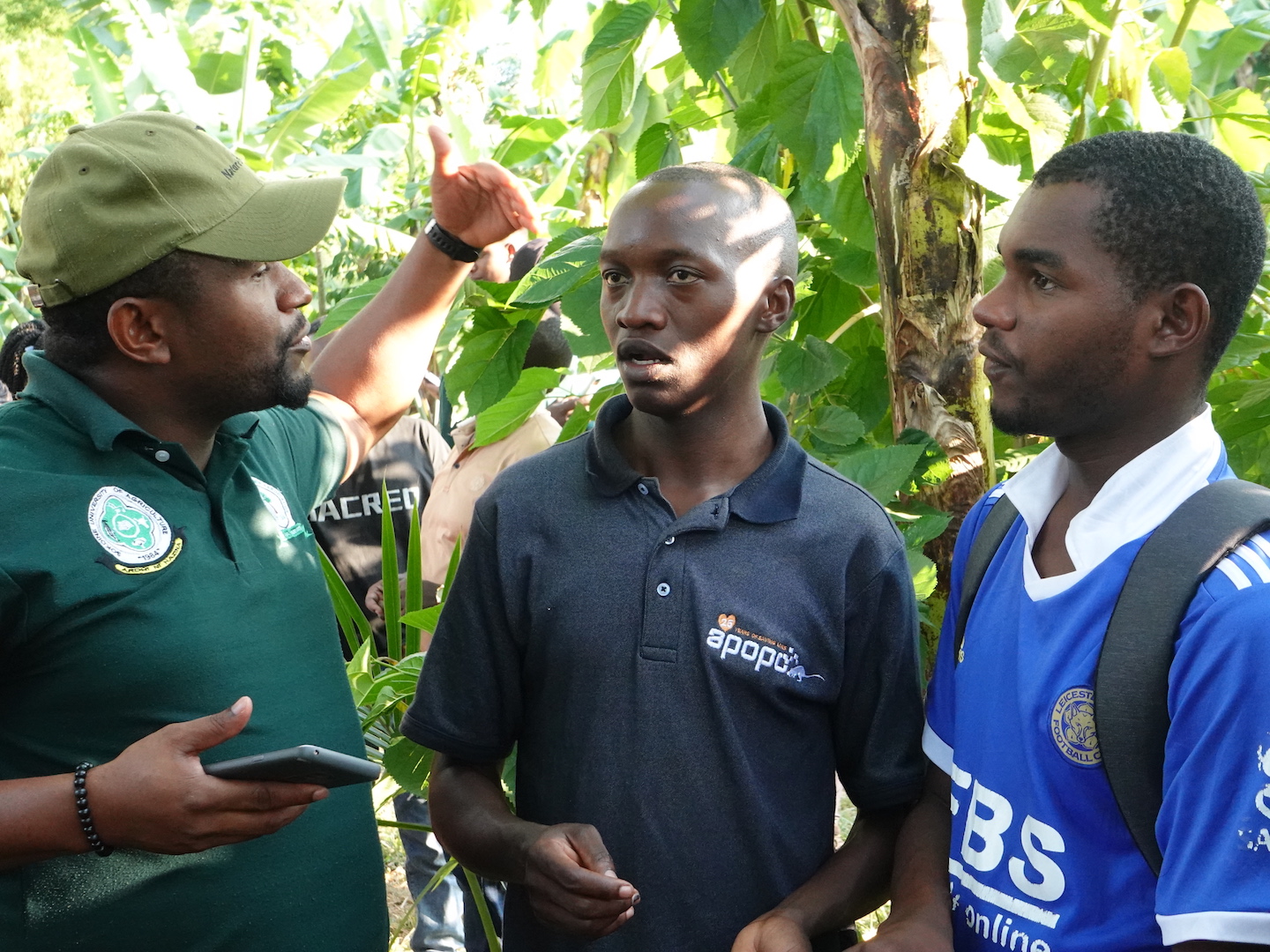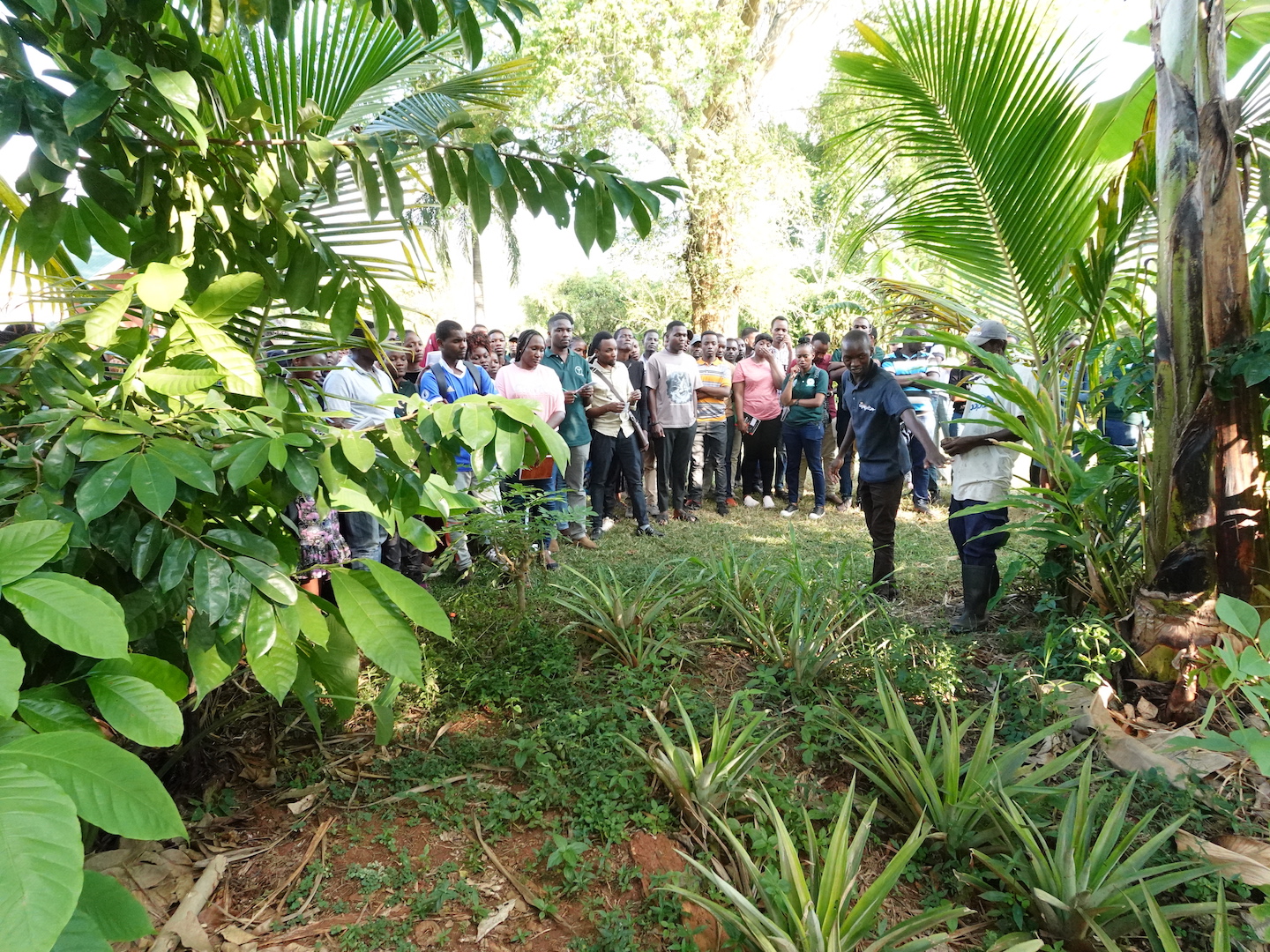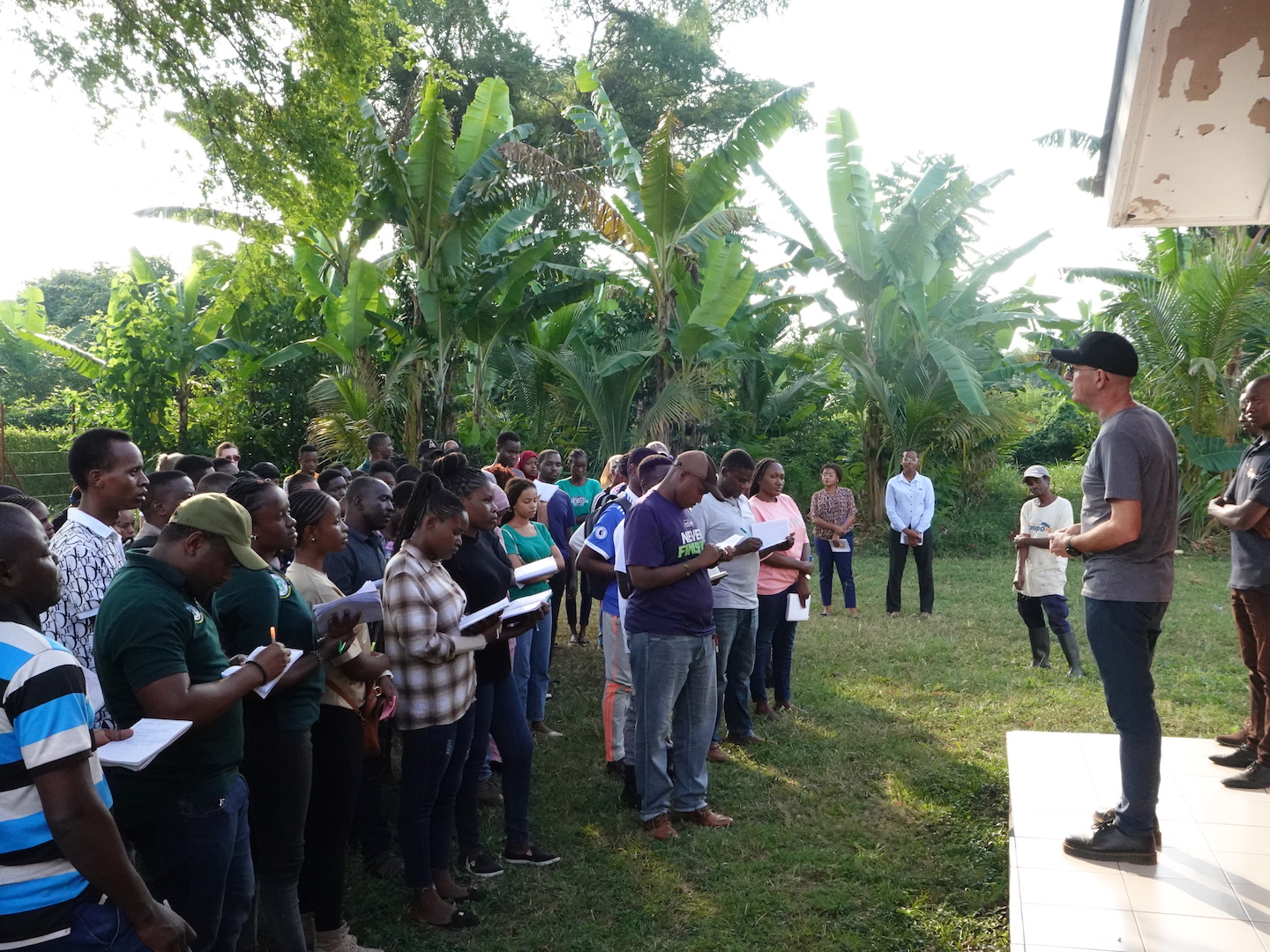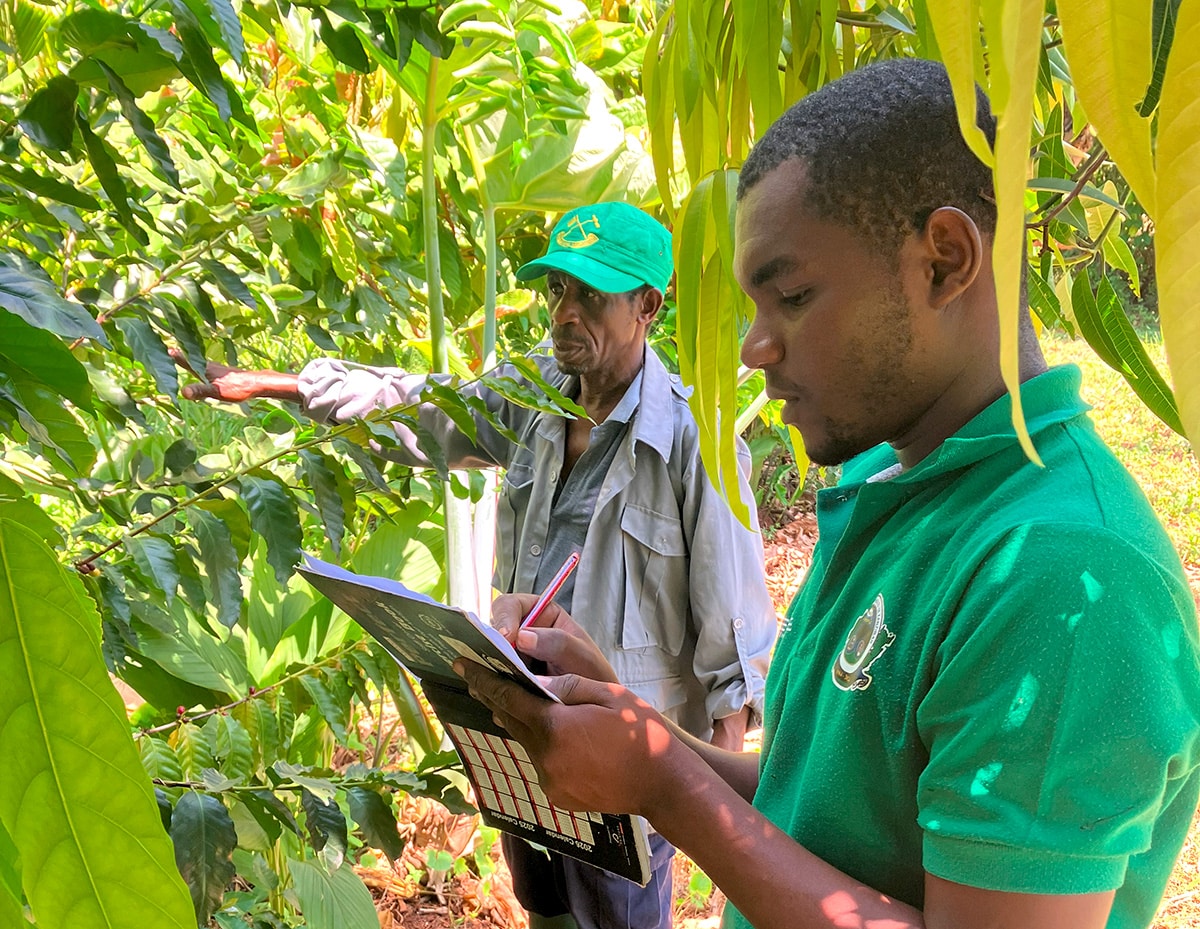We recently welcomed Haji Khamis to our syntropic agroforestry plot at APOPO’s main office. A forestry student at Sokoine University of Agriculture (SUA), Haji has been passionate about plants and sustainability since his high school days.
In 2016, while studying at Lumumba Secondary School, he founded and managed the Lumumba Roots & Shoots Botanic Garden — a project focused on conserving plant biodiversity in Zanzibar. His dedication earned him the Best Student Award for Environmental Care in 2022.
Motivated to deepen his impact, Haji pursued a BSc in Forestry at SUA, aiming to expand his knowledge and advance his career in forest and plant conservation.
Inspired by a Syntropic Agroforestry Workshop

Haji first learned about APOPO’s involvement in agroforestry when he attended our public syntropic agroforestry workshop in December 2024. Intrigued by the approach and its potential, he reached out to us soon after.
Determined to contribute meaningfully, Haji visited APOPO’s Tanzania headquarters to present a compelling research proposal titled, “To evaluate the soil moisture retention capacity in syntropic farming systems and conventional farming systems, to understand their impact on agriculture, sustainability, crop productivity, and soil health.”

Researching Soil Moisture and Sustainability
The core goal of Haji’s research is to compare soil moisture retention between syntropic agroforestry plots and conventional farming systems. By analyzing soil samples from both environments, he aims to better understand their respective impacts on sustainability, crop productivity, and long-term soil health. To support his work, Haji collected randomized soil samples and began an in-depth analysis, bringing science and sustainability together to inform future farming practices. The results of his study were striking: syntropic samples retained nearly twice the soil moisture content as samples from conventional agricultural demo plots on the university campus.
Haji highlights that, in the face of climate change, soil moisture retention is crucial for the future of agriculture, and this study shows the clear advantages of syntropic agroforestry. He believes that these findings will help raise awareness among local farmers and the general Tanzanian public about the benefits of syntropic agroforestry as a sustainable farming practice that supports biodiversity conservation and food security. The results of Haji’s research will be submitted near the University Exams (UE) as part of his undergraduate degree completion requirements, demonstrating not only his commitment to academic excellence but also his contribution to advancing sustainable agricultural knowledge.
He also sees great potential for syntropic agroforestry to be adopted in different environments, not only as a farming method but also as a decorative green space in urban areas. Its lush greenery and diverse vegetation can enhance city landscapes while providing environmental benefits.

APOPO has been closely linked to SUA since its inception in the late 90s. Now, through the HeroTREEs program, we aim to expand our collaboration with students, researchers, and professors to promote regenerative agriculture and become a hub for innovation in syntropic agroforestry. APOPO aims to be an innovation catalyst, building a community of practice where experts, farmers, and researchers can come together to exchange knowledge, share best practices, and collectively develop solutions for more resilient and regenerative agriculture.
Subscribe to the HeroTREEs newsletter, click here learn more, connect, and contribute to sustainable, climate-resilient agriculture.

